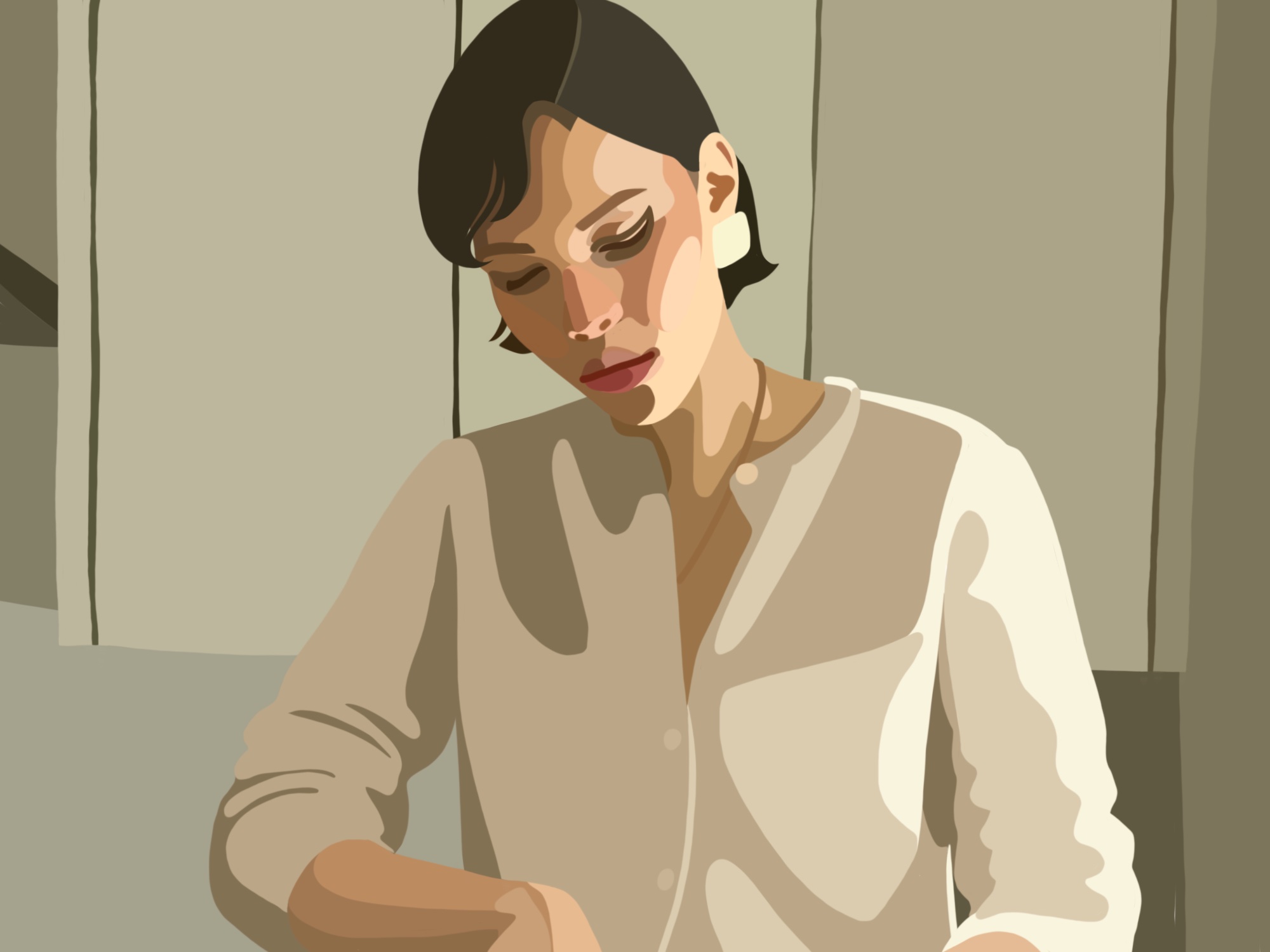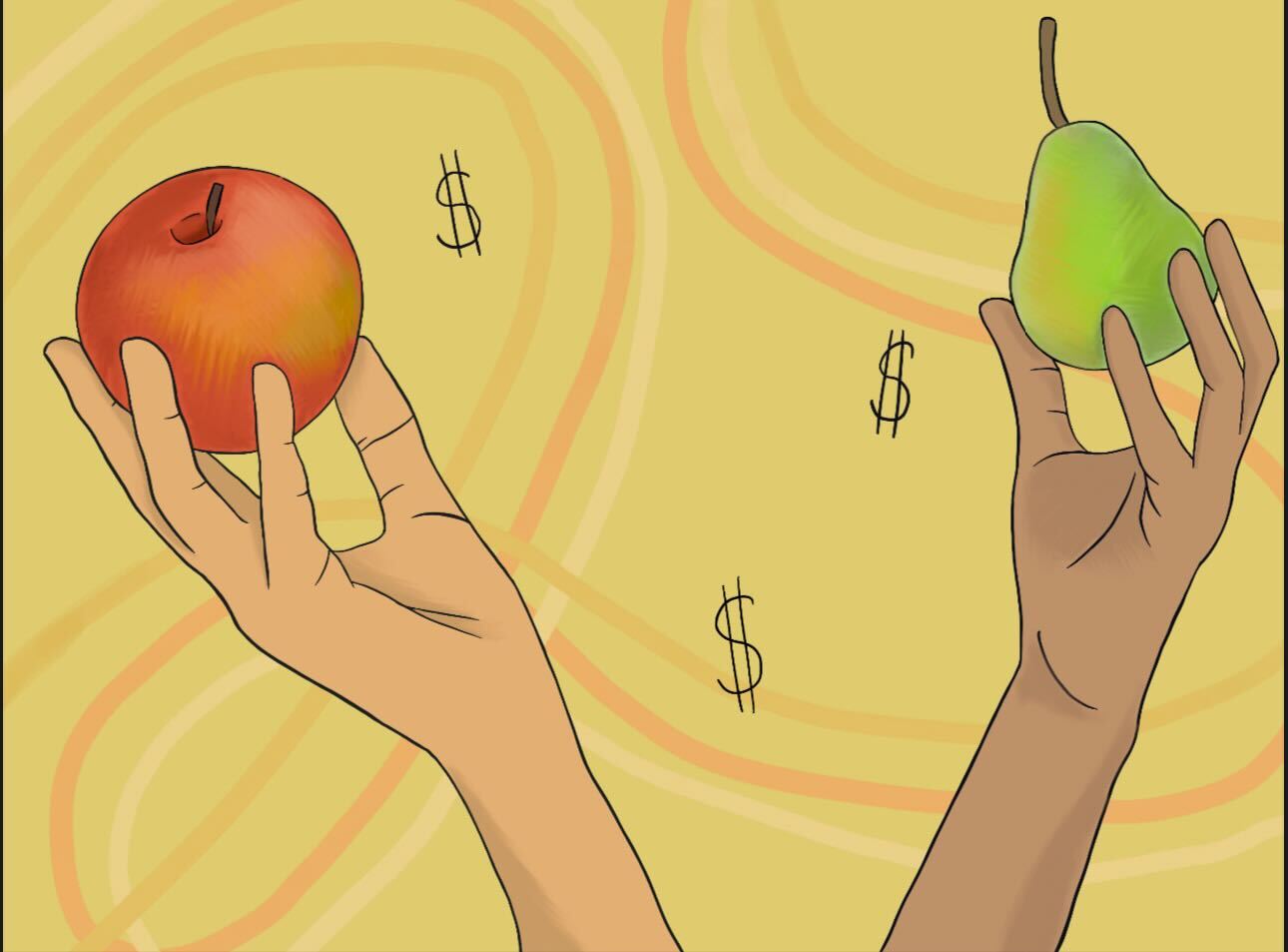The scents of our childhood stay ingrained in our memories. Maybe it’s the smell of the rain on your swing set or the lavender-scented teddy bear your aunt gave you for your third birthday.
Sometimes, it’s the scent of the morning: bacon grilling, cinnamon rolls rising in the oven, mom’s coffee brewing and pancakes on the skillet.

Food can not only provide nourishment, but it can also evoke memories. Cooking and baking can be a large source of connection for families, and such is the case for model and TikTok influencer Nara Smith, who shares the food she prepares for her husband and children.
Smith, a Los Angeles mom of two with a third on the way, gained popularity on TikTok for stating that she cooks almost all her family’s meals and snacks from scratch. In her videos, Smith can be seen making homemade versions of popular snacks like PopTarts and making homemade bread for her kids’ grilled cheese. Smith’s soothing voice provides commentary along with aesthetic visuals of her outfit, cooking and kitchen.
But as Smith continued to share her hard work in the kitchen, debate sparked about a tired feminine stereotype I thought we were done with — a woman’s place as a housewife.
Smith received major backlash saying that she is promoting the notion that women should do all the cooking in the household, especially since her husband is rarely seen helping her in the kitchen.
Yet, is Smith truly sharing this content to set feminism back generations, or is it simply to share the memories and nourishment that come from cooking from scratch?
This criticism has earned Smith the label of “tradwife.” A tradwife is a woman who takes on a traditional role in domestic life, doing cooking, cleaning and childcare, and is nostalgic of 1950s home life. It has become a subculture on social media, with many influencers such as Hannah Neeleman following suit.
This doesn’t necessarily mean that women who identify with this subculture want to revert back to misogynistic 1950s gender roles — they still want the rights they have in the modern century — but it’s more about the aesthetic of these videos and a “slow living” lifestyle rather than the politics.
The “tradwife” trend parallels early 2010s’ girlboss feminism, in which women were encouraged to work their way up career ladders and establish themselves in the workplace. The way I look at it, a 9:00 p.m.-5:00 p.m. workday became exhausting and less popular in the 2020s, causing some women to desire a domestic “bliss.”
While Smith has not directly commented on the criticism she has received, she does not believe herself to be a tradwife, especially since her husband has occasionally joined her in her videos to bake and cook with her.
At the end of the day, watching a woman on TikTok performing domestic duties isn’t necessarily a promotion of the tradwife ideology and a call back to traditional gender roles.
A cultural statement that Smith has made, however, is subtle commentary on the standards of food. It is clear that Smith simply wants a nourishing diet for her children in a world full of processed foods and GMOs, and the simplest way to avoid these additives is to make your food from scratch.
It is also completely normal in other cultures to make food from scratch. According to a survey done by Country Living, households in India spend almost 14 hours cooking and preparing food in the kitchen per week. Additionally, Italians make pasta and marinara sauce from scratch, and many families have recipes that are passed down from generation to generation.
Every family operates in its own way. In Smith’s case, she wants to show her love for her family through the meals she makes for them. The one thing that matters in how she chooses to live her life is whether she is happy or not.
These so-called “tradwife influencers” are not putting women in danger by cooking a meal on TikTok, and it’s not right to accuse them of threatening their own rights.





























































































































